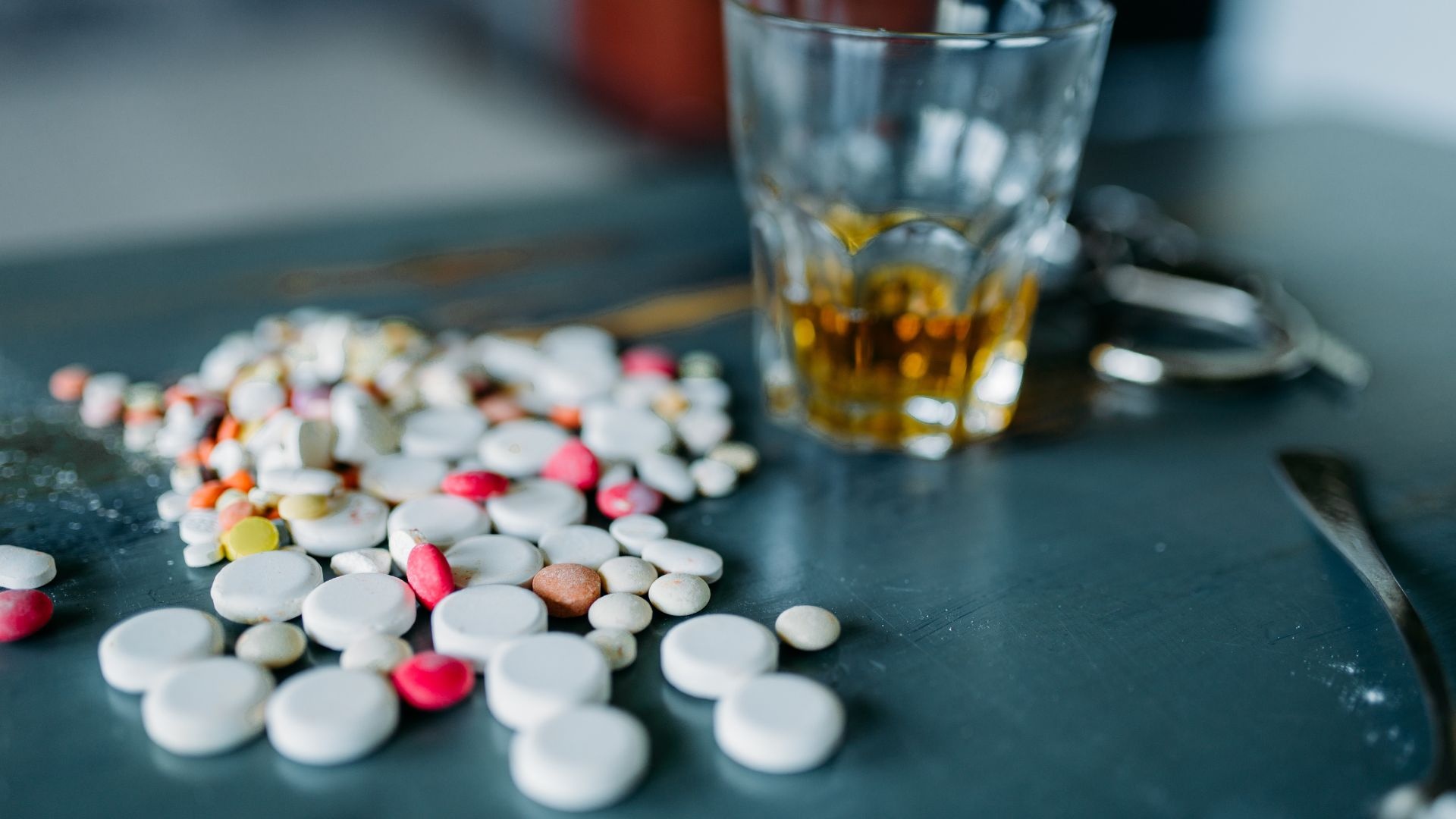Signs of Vyvanse Addiction


Recognize the early signs of Vyvanse addiction and learn how to seek help. This guide offers essential insights and support options.
Vyvanse, a prescription medication primarily used to treat ADHD and binge eating disorder, has proven beneficial for many. However, its stimulant properties carry a significant risk of abuse and addiction. Recognizing the signs of Vyvanse addiction early is crucial for timely intervention and effective treatment.
At The Forge Recovery Center, we are dedicated to supporting individuals facing such challenges. In this article, you will learn about the physical, behavioral, and psychological indicators of Vyvanse addiction, understand the associated risks, and discover the treatment options available to help you or your loved one embark on the path to recovery.
What Is Vyvanse?
Vyvanse, the brand name for lisdexamfetamine dimesylate, is a prescription medication primarily used to treat attention deficit hyperactivity disorder (ADHD) in individuals aged six and older, as well as moderate to severe binge eating disorder (BED) in adults. As a central nervous system stimulant, Vyvanse helps increase attention, decrease impulsiveness, and reduce hyperactivity in patients with ADHD.
How Does Vyvanse Work?
Chemically, Vyvanse is a prodrug of dextroamphetamine, meaning it is inactive until metabolized in the body. After oral administration, lisdexamfetamine is rapidly absorbed and converted primarily in the blood due to the hydrolytic activity of red blood cells to dextroamphetamine, which is responsible for the drug's activity.
This conversion results in increased levels of norepinephrine and dopamine in the brain, neurotransmitters that play key roles in attention and behavior regulation.
Potential for Abuse
While Vyvanse is effective for its approved medical uses, its stimulant properties carry a high potential for abuse and dependence. Misuse of Vyvanse can lead to serious cardiovascular adverse events and other health complications. Therefore, it is crucial to use Vyvanse strictly as prescribed and to be aware of the signs of misuse and addiction.
Physical Signs of Vyvanse Addiction
Recognizing the physical manifestations of Vyvanse addiction is crucial for early intervention. The following symptoms may indicate misuse or dependence:
Changes in Appetite and Significant Weight Loss
Vyvanse can suppress appetite, leading to reduced food intake. Over time, this may result in noticeable weight loss and potential nutritional deficiencies.
Sleep Disturbances, Including Insomnia
As a stimulant, Vyvanse can disrupt normal sleep patterns, causing insomnia or poor-quality sleep. Chronic sleep deprivation can further impair cognitive and physical health.
Increased Heart Rate and Elevated Blood Pressure
Misuse of Vyvanse may lead to cardiovascular issues such as tachycardia (rapid heart rate) and hypertension (high blood pressure), increasing the risk of heart attack or stroke.
Unexplained Physical Exhaustion or Hyperactivity
Individuals addicted to Vyvanse might experience extreme fatigue when not using the drug, or conversely, exhibit hyperactive behavior during periods of use. These fluctuations can affect daily functioning and overall well-being.
If you or someone you know is exhibiting these physical signs, it is important to seek professional help promptly.
Are You Struggling with Mental Health or Addiction?
We Can Help. Call Us Now!
CALL: 877-839-1772
Behavioral Indicators of Vyvanse Addiction
Recognizing behavioral changes is crucial in identifying Vyvanse addiction. Key indicators include:
Compulsive Drug-Seeking Behavior
You may find yourself obsessively seeking Vyvanse, engaging in deceptive practices like doctor shopping or falsifying prescriptions. This relentless pursuit can overshadow other aspects of your life.
Neglecting Responsibilities
Addiction can lead to a decline in your performance at work, school, or home. Tasks may go unfinished, deadlines missed, and overall productivity diminished as you prioritize drug use over obligations.
Social Withdrawal and Isolation
You might distance yourself from friends and family, avoiding social interactions to conceal your drug use or due to feelings of shame and guilt. This isolation can exacerbate the addiction cycle.
Engaging in Risky Activities
To obtain or use Vyvanse, you may partake in dangerous behaviors, such as purchasing drugs from unverified sources, using the medication in unsafe environments, or combining it with other substances, increasing the risk of adverse effects.
Recognizing these behavioral signs is essential for early intervention and seeking appropriate treatment.
Psychological Symptoms of Vyvanse Addiction
Vyvanse addiction can profoundly affect your mental health, leading to several psychological symptoms:
Mood Swings, Including Irritability and Agitation
You may experience sudden and intense mood fluctuations, feeling irritable or agitated without clear cause. These emotional shifts can strain relationships and disrupt daily life.
Anxiety and Panic Attacks
Misusing Vyvanse can heighten anxiety levels, leading to persistent worry or panic attacks characterized by rapid heartbeat, sweating, and overwhelming fear. These episodes can be debilitating and interfere with your ability to function.
Depression and Feelings of Hopelessness
Chronic Vyvanse abuse may lead to depressive symptoms, including persistent sadness, loss of interest in activities, and feelings of hopelessness or worthlessness. These feelings can increase the risk of self-harm or suicidal thoughts.
Hallucinations or Delusional Thinking in Severe Cases
In extreme situations, Vyvanse addiction can cause psychosis, leading to hallucinations (seeing or hearing things that aren't there) or delusional thinking (believing false ideas). These severe symptoms require immediate medical attention.
If you're experiencing any of these psychological symptoms, it's crucial to seek professional help promptly to address Vyvanse addiction and its mental health impacts.
Are You Struggling with Mental Health or Addiction?
We Can Help. Call Us Now!
CALL: 877-839-1772
Recognizing Tolerance and Dependence
Understanding the progression from tolerance to dependence is crucial in identifying Vyvanse addiction. Key indicators include:
Needing Higher Doses to Achieve the Same Effects
Over time, you may find that the initial dose of Vyvanse no longer provides the desired effects, leading you to increase the dosage without medical guidance. This escalation is a sign of developing tolerance, where your body becomes accustomed to the drug, diminishing its
Experiencing Withdrawal Symptoms When Not Using Vyvanse
If you experience symptoms such as fatigue, depression, irritability, or intense cravings when you miss a dose or stop taking Vyvanse, it indicates physical dependence. Your body has adapted to the presence of the drug, and its absence triggers withdrawal symptoms.
Understanding the Progression From Tolerance to Dependence and Addiction
Initially, tolerance develops as your body requires more of the drug to achieve the same effect. Continued use leads to dependence, where your body relies on Vyvanse to function normally. Without intervention, this cycle can progress to addiction, characterized by compulsive drug-seeking behavior despite negative consequences.
Recognizing these signs early is essential for seeking appropriate treatment and preventing the escalation of Vyvanse addiction.
Risks and Consequences of Vyvanse Addiction

Vyvanse addiction can lead to a range of serious health complications:
Cardiovascular Issues
Elevated blood pressure and increased heart rate.
Heightened risk of heart attack or stroke.
Malnutrition
Suppressed appetite resulting in significant weight loss.
Potential nutritional deficiencies affecting overall health.
Organ Damage
Prolonged misuse may lead to liver and kidney damage.
Increased strain on bodily systems due to stimulant effects.
Mental Health Deterioration
Exacerbation of existing conditions like anxiety or depression.
Development of new issues, including psychosis or paranoia.
Legal and Financial Problems
Engaging in illegal activities to obtain the drug.
Accumulating debt or financial instability due to drug-related expenses.
Strained Relationships
Neglecting family and social responsibilities.
Loss of trust and support from loved ones.
Recognizing these risks underscores the importance of seeking professional help to address Vyvanse addiction effectively.
Are You Struggling with Mental Health or Addiction?
We Can Help. Call Us Now!
CALL: 877-839-1772
Seeking Help and Treatment Options
Acknowledging a Vyvanse addiction is a courageous and vital step toward recovery. Early intervention can prevent the escalation of health complications and improve the likelihood of successful treatment.
Treatment Options
A comprehensive approach to overcoming Vyvanse addiction includes:
Detoxification: Medically supervised detox helps manage withdrawal symptoms and ensures safety during the initial phase of abstinence.
Inpatient Programs: Residential treatment provides a structured environment with 24/7 support, allowing individuals to focus entirely on recovery.
Outpatient Programs: Flexible treatment options that enable individuals to receive therapy while maintaining daily responsibilities.
Counseling and Therapy: Individual and group counseling address underlying issues contributing to addiction and develop coping strategies.
Support Groups: Peer support groups offer shared experiences and encouragement throughout the recovery journey.
Personalized Treatment at The Forge Recovery Center
At The Forge Recovery Center, we understand that each individual's journey is unique. Our team collaborates with you to create a personalized treatment plan tailored to your specific needs, incorporating evidence-based therapies and holistic approaches to promote lasting recovery.
Take the First Step Toward a Better Life
Seeking professional help is a sign of strength and a commitment to a healthier, addiction-free life. If you or a loved one is struggling with Vyvanse addiction, reach out to The Forge Recovery Center today. Our compassionate team is here to support you every step of the way.
Is Vyvanse Addiction Affecting Your Life? We're Here to Help
Recognizing the signs of Vyvanse addiction is crucial for timely intervention and recovery. Understanding the physical, behavioral, and psychological indicators enables you to seek appropriate support.
At The Forge Recovery Center, we offer personalized treatment plans, including detoxification, counseling, and support groups, tailored to your unique needs. Taking the first step toward recovery is a courageous decision, and our compassionate team is here to guide you every step of the way. Contact us today to begin your journey to a healthier, addiction-free life.
Are You Struggling with Mental Health or Addiction?
We Can Help. Call Us Now!
CALL: 877-839-1772





